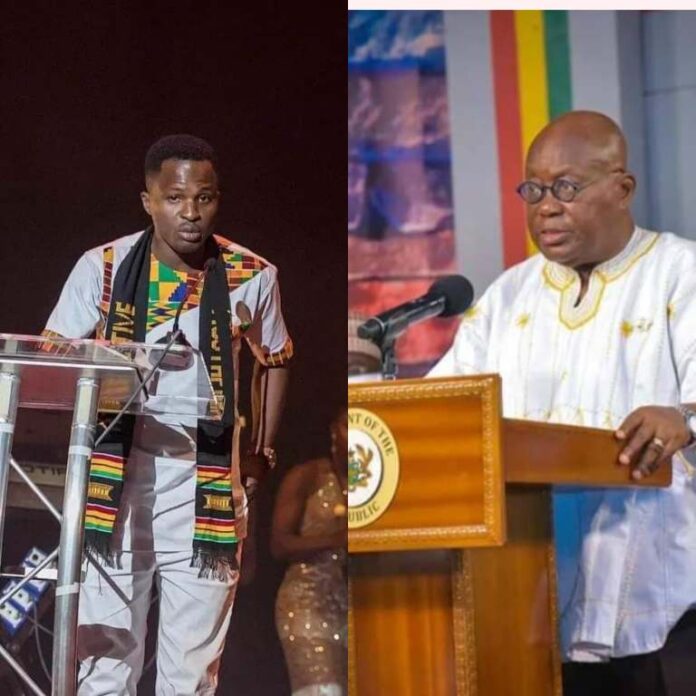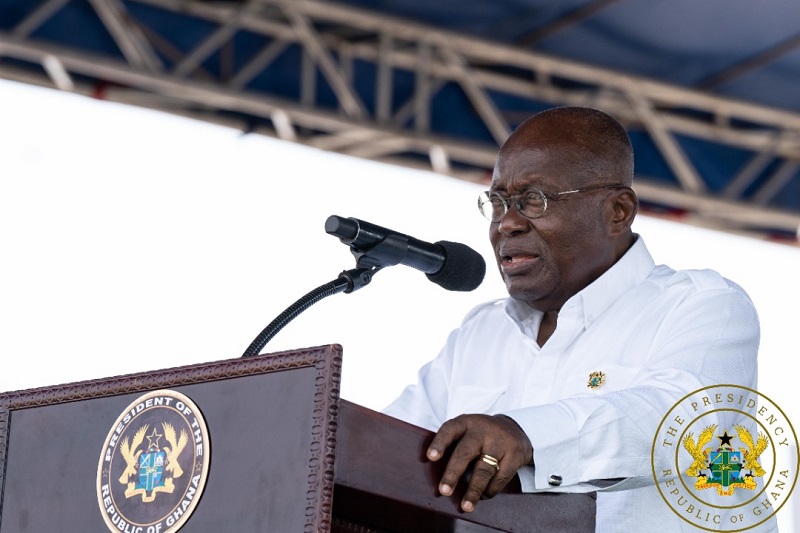
As the Creative Arts industry lobby to have some of their personalities appointed as ministers of Tourism, Culture and Creative Arts in Nana Addo-Dankwa Akufo-Addo’s second term, Ghanaian journalist and blogger Attractive Mustapha has predicted in a long note that president Akufo-Addo may not appoint an industry person to handle the sector.
In his note, Attractive Mustapha, Mustapha Nii Okai Inusah, stated among other things the obvious disunity among industry players especially those believed to be in the good books of the president and ruling New Patriotic Party who stand a better chance of being favored for appointments and wrong lobbying channels as hindrances to the quest of achieving this goal.
Read the full note below.
Why Akufo-Addo may not appoint a creative arts person as minister for the sector
President Nana Addo-Dankwa Akufo-Addo was sworn in on 7th January, 2020 to begin his second term albeit challenged at the Supreme Court. As expected, many people are looking forward to his appointment of ministers, deputies and other nominees for various state owned institutions in the coming weeks.
The fact that the president has been sworn in and has started his second term does not give his ministers and other appointees an automatic hold on to their positions since their term of office has officially ended and must be renewed if the president still deems them fit.
Just yesterday, inline with the Presidential Transition Act, Act 845 of 2012.President Akufo-Addo relieved all his ministerial appointees of their duties, pending the appointment of new ones.
In 2017 when Nana Addo-Dankwa Akufo-Addo was first elected into office, he officially released his first batch of his 13 ministers around 10th January so it will not be surprising to see the president put out his first list this week.
As the days go by, one sector that has been advocating massively for the president to appoint an industry person is the creative arts industry.
Yes, many people including myself have shared the view that the creative arts ministry could well be managed by people within creative art instead of being handled by ordinary politicians who do not wield much knowledge on the sector.
In 2013 when former president John Dramani Mahama first created the Ministry of Arts and Tourism, I was part of a few who endorsed some personalities in the industry including Hon. Dzifa Abla Gomashie who was made deputy minister at the time.
Back in 2017 when President Akufo-Addo took office, he failed to nominate an industry person with the conviction that fixing politicians there was better than bringing an industry person on board.
Besides, President Akufo-Addo’s first four years offered appreciable opportunities to some members of the creative arts fraternity who campaigned for his presidential bid whiles he was in opposition so it was quiet disappointing when hopes were shattered.
Now in 2021, as the president prepares to name his ministers, some industry people have started lobbying and advocating that the president must appoint a creative person, meaning someone who is actively involved in the affairs of the industry and erudite in its operations.
Interestingly, all those doing the bidding are not asking the president to put their candidates on the substantive list but rather wishing for the deputy ministerial slot.
Some competent and capable names are been listed by many people within the creative space but I am compelled to believe that the president may not appoint a creative arts person to handle the sector for reasons listed below.
Constitutional constraints
With Article 78 (1) of the 1992 Constitution which urges the President to appoint majority of ministers of state from Parliament or persons qualified to be elected as members of Parliament, it puts the president in a very tight corner. This is because the privilege of not being a Member of Parliament but receiving an appointment has been limited to people who are active and long-standing members of his party unlike the case of most people within the creative arts who are still not too experienced in politics and actively involved in the day to day affairs of the ruling New Patriotic Party. If this is anything to go by, then immediate past president of Musicians Union of Ghana, Bice Osei Kuffour, also known as Obour will be the one with a higher advantage since he actively participated in the activities of the NPP in the last four years to the extent of contesting for Parliamentary candidate of the Asante-Akyim South constituency in the party’s primaries which he lost narrowly.
*Gender* – With creative arts, unlike other sectors, the gender card plays a very vital role, because most people think arts can easily be associated with women, so obviously the industry will continue to see women standing a better chance of being appointed than men.
Considering the fact that 90% of the names being suggested by industry people are males most of whom were hitherto not active is problematic.
*Bad lobbying skills* – Even though the 1992 constitution states that the president should appoint majority of his ministers from parliament, the president can decide to offer an opportunity to some of his competent favorites and capable personalities within the creative arts industry but that can only be achieved through proper lobbying, not the one we are witnessing on social media by lobbyists and random advocates.
Also, lack of unity among industry players is a major hindrance to this agenda. In times like this, the industry does not need a lot of names popping up and competition from different quarters with regards to who deserves it and who does not. The mentioning of too many names and the seeming battle for supremacy is not healthy because it renders the appointing authorities a “tangible” reason to continue appointing their preferred politicians who do not necessarily possess the technical know-how for the effective running of the sector.
Qualification – It is imperative to note that even if the president decides to nominate an industry person, it will not just be an act of tokenism. Certain key factors will be considered to sum up as competencies in such regard. Among other things, the lucky person must be of high repute in the industry, possess qualities such as good human relations, in-depth knowledge about how well the person can manage the various sectors of the ministry, unquestionable credibility, how well the person understands governance, ability to link the citizenry with activities of the sector, ideas to generate more revenue, the willingness to accept criticisms and inculcate positive ones for the betterment of the sector, and how well the person understands the current political trends.
Hung Parliament – with the current hung Parliament, the president is obviously aware that his appointees are not going to have it on a silver platter and as a matter of fact he will not like to risk appointing political “wanabees” who may fail to impress during vetting. Considering the fact that most of the names suggested are not properly exposed politically, the president may not want to embarrass himself and bring his sense of judgment into disrepute
I do not foresee the above listed qualities been displayed by the names making rounds so far not because they do not possess them but because the people involved have not demonstrated that strategically.
If for nothing at all, there are people who command a great deal of respect and have risen through the ranks in the industry. It cannot be said that the brands of human resources in the creative arts are such inferior that not even a single person fits the position of minister or deputy minister because “we have the men”.
I wish all the aspirants well and hope that the president identifies capable individuals in his creative arts fold to run the affairs of the sector as former president John Dramani Mahama appointed Hon. Abla Dzifa Gomashie as the deputy minister in the erstwhile NDC administration.
ATTRACTIVE MUSTAPHA



